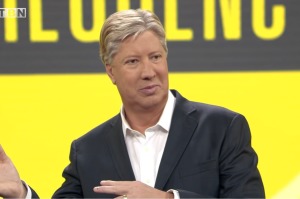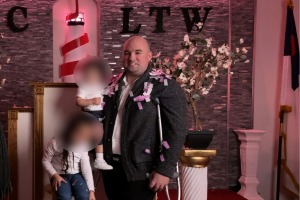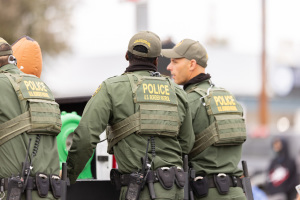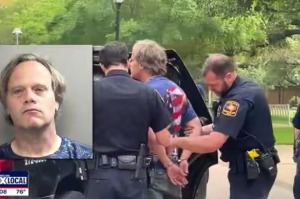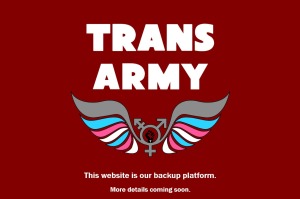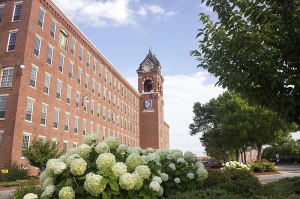'Conspiracy of silence' enabling Christian 'genocide' in Nigeria, Catholic bishop tells Congress
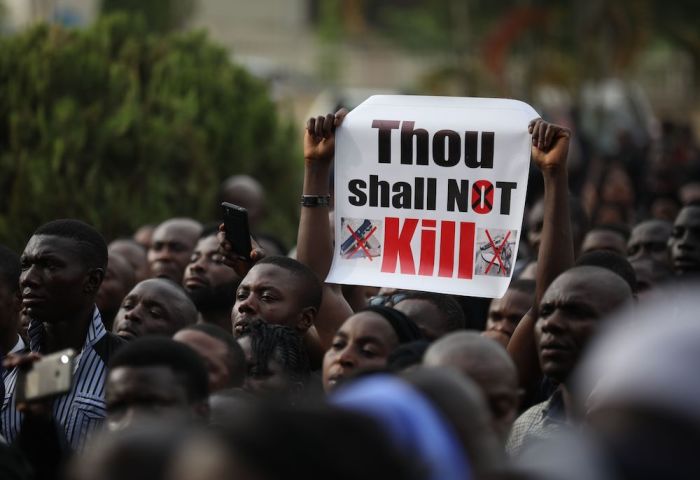
WASHINGTON — In testimony provided to a U.S. congressional subcommittee, a Nigerian Catholic bishop decried a "conspiracy of silence" from his government and the international community in response to what he says is genocidal violence targeting Christian communities in the African nation.
The House Foreign Affairs Committee's Subcommittee on Global Health, Global Human Rights and International Organizations held a hearing on July 18 titled "The Dire State of Religious Freedom Around the World."
Bishop Wilfred Anagbe of the Roman Catholic Diocese of Makurdi in Benue State, Nigeria, was scheduled to testify about the mass killings in his diocese but was unable to attend the hearing.
The written version of the remarks he was slated to make, which were shared with The Christian Post, was entered into the congressional record.
"For a long time, attacks by Islamic militants have not only killed thousands but have also displaced millions who now take refuge in camps scattered across the State," he explained in his written testimony.
"Schools, clinics, churches, markets, etc., have all been destroyed in some areas. Since 2014, when I became bishop, I have lost territory to the Islamic militants masquerading as herdsmen, I have had to close 14 parishes because of the danger," he added.
Anagbe also detailed how Benue state has been greatly impacted by mass killings that have led to "displacement and occupation of lands" since 2009.
But since 2014, he and other bishops in Benue have "lost parishioners on an almost daily basis."
"[T]he killings of people, even pregnant women and children, and the occupation of their lands to cause the cessation of all economic activities mirrors the pattern of Jihadi elements like the Boko Haram in other parts of Nigeria," Anagbe stated.
For years, human rights advocates and Nigerian Christians have raised concerns about the violence that has led to the killings of thousands across Nigeria's Middle Belt states, including Benue, in recent years, saying that radicalized herdsmen have attacked predominantly Christian farming communities.
While Christian leaders believe that the attacks have a religious element, the Nigerian government contends that the violence is part of decades-old farmer-herder clashes and has firmly pushed back against claims the violence amounts to religious "genocide."
In his testimony, the bishop characterized the occurrences as a "calculated genocide," sharing the definition of genocide, according to the United Nations Office on Genocide Prevention and the Responsibility to Protect, as "acts committed with intent to destroy in whole or in part a national, ethnical, racial or religious group."
"It is disheartening to note that since the atrocities started, nothing serious has been heard to happen to the perpetrators," Anagbe lamented. "Our national government has not shown convincing signs or real commitment to ending the killings. The inaction and silence about our plight by both government and powerful stakeholders all over the world prompts me too often [to] conclude that there is [a] conspiracy of silence and a strong desire to just watch the Islamists get away with genocide in Benue State and other parts of Nigeria."
Anagbe urged committee members to "come to the aid of the Christian community in Benue, and indeed in Nigeria as a whole, before it becomes too late."
The bishop argued that the violence against Christians, constituting a 97% majority in Benue, amounts to a religiously motivated jihad.
"In 1989, a gathering of Muslims in Nigeria adopted what is today known as the 'Abuja Islamic Declaration,'" he stated. "It is a declaration that has been adopted by the Islamic Council of Nigeria. The declaration outlines a vision for the role of Islam in Nigerian society, and it calls for the establishment of an Islamic State in Nigeria."
"The Abuja Islamic Declaration is strongly influenced by the ideas of the Egyptian Muslim [B]rotherhood and the Iranian revolution. The Declaration argues that Islam is a complete way of life that should guide all aspects of society, including politics, economics, and culture."
Anagbe attributed the "steady decline into religious bigotry" that has come to define his country to the Abuja Islamic Declaration. He maintained that "the blatant killing and displacement of Christian communities in Nigeria is done in fulfillment of the long-time promise by fundamentalist Islamic groups in Nigeria bent on 'dipping the Quran into the Atlantic Ocean,' a euphemism for conquering the Christian states of the middle belt and southern regions of Nigeria."
As he concluded his remarks, Anagbe called for Nigeria again to be placed on the U.S. State Department's list of "countries of particular concern" for engaging in or tolerating egregious violations of religious freedom.
He also signaled support for the "appointment of a Special Envoy to the Sub-Saharan Region of Africa to enable the truth about the issues we have been trying to bring to the attention of the West to come out."
Anagbe's testimony comes as the Biden administration has faced criticism for keeping Nigeria off the State Department's annual list of Countries of Particular Concern, a designation for governments that engage in or tolerate egregious violations of religious freedom.
While the Trump administration added Nigeria to the list of CPCs in December 2020, the Biden administration removed that designation to Nigeria the following year, even though religious freedom advocacy organizations have repeatedly raised concerns about the level of religious persecution there.
On its 2023 World Watch List, which ranks the countries of the world based on the degree of persecution and discrimination Christians are subjected to, Open Doors US identified Nigeria as the sixth-worst country for Christian persecution.
It cited Nigeria as the source of 89% of the total number of Christians killed for their faith in 2022. In an interview with The Christian Post at the time of the report's release, Open Doors US Interim CEO Lisa Pearce described the country's absence from the CPC list as a "difficult thing to reconcile."
A petition delivered to the White House last year urging the State Department to designate Nigeria as a CPC received 32,000 signatures. The petition, spearheaded by Revelation Media and Alliance Defending Freedom, came shortly before the State Department released its list of CPCs in 2022. For the second year in a row, the State Department's list of CPCs did not include Nigeria.
Rabbi Abraham Cooper, the chair of the U.S. Commission on International Religious Freedom, which makes recommendations to the State Department, spoke about the situation in Nigeria at Tuesday's hearing. He echoed Anagbe's call to place Nigeria on the CPC list and establish a Special Envoy for Nigeria.
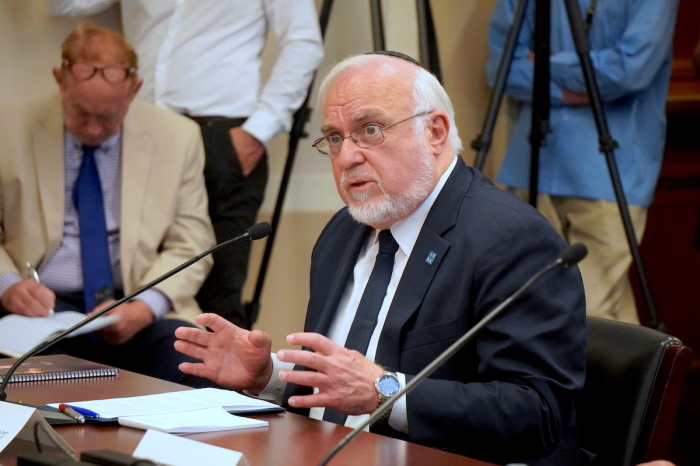
"Nigeria has become a country steeped in religious freedom violations where people of faith and those of no faith at all increasingly live in fear of harassment, imprisonment and violence," he insisted. "It meets clearly the CPC standard under [the International Religious Freedom Act] as evident in the State Department's own [International Religious Freedom] Report released in May."
"It is also why USCIRF recommended the appointment of a Special Envoy for Nigeria and the Lake Chad Basin to maximize U.S. diplomatic efforts, to address the atrocity risks and religious freedom violations."
Cooper called on members of Congress to pass House Resolution 82, which would express "the sense of Congress regarding the need to designate Nigeria a Country of Particular Concern for engaging in and tolerating systemic, ongoing, and egregious violations of religious freedom" as well as "the need to appoint a Special Envoy for Nigeria and the Lake Chad region."
Introduced by Rep. Chris Smith, R-N.J., the chairman of the House Foreign Affairs Committee's Subcommittee on Global Health, Global Human Rights and International Organizations, the measure has attracted 13 cosponsors: Reps. Gus Bilirakis, R-Fla., Ben Cline, R-Va., Henry Cuellar, D-Texas, Brian Fitzpatrick, R-Pa., Mark Green, R-Tenn., French Hill, R-Ark., John James, R-Mich., Doug Lamborn, R-Colo., Doug LaMalfa, R-Calif., Jake LaTurner, R-Kan., Michael McCaul, R-Texas and Maria Elvira Salazar, R-Fla.
Republican Delegate Aumua Amata Coleman of American Samoa, a non-voting member of the U.S. House of Representatives, has also signed on to cosponsor the legislation. The House Foreign Affairs Committee has yet to bring it up for a vote in the nearly six months since it was introduced on Jan. 31.
Ryan Foley is a reporter for The Christian Post. He can be reached at: ryan.foley@christianpost.com
















